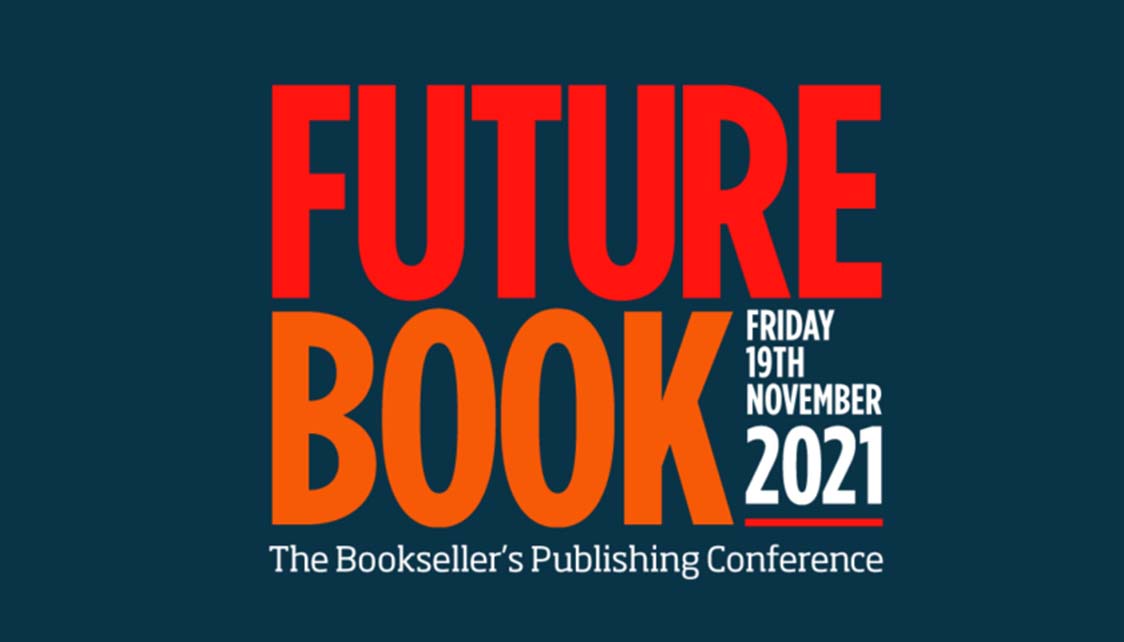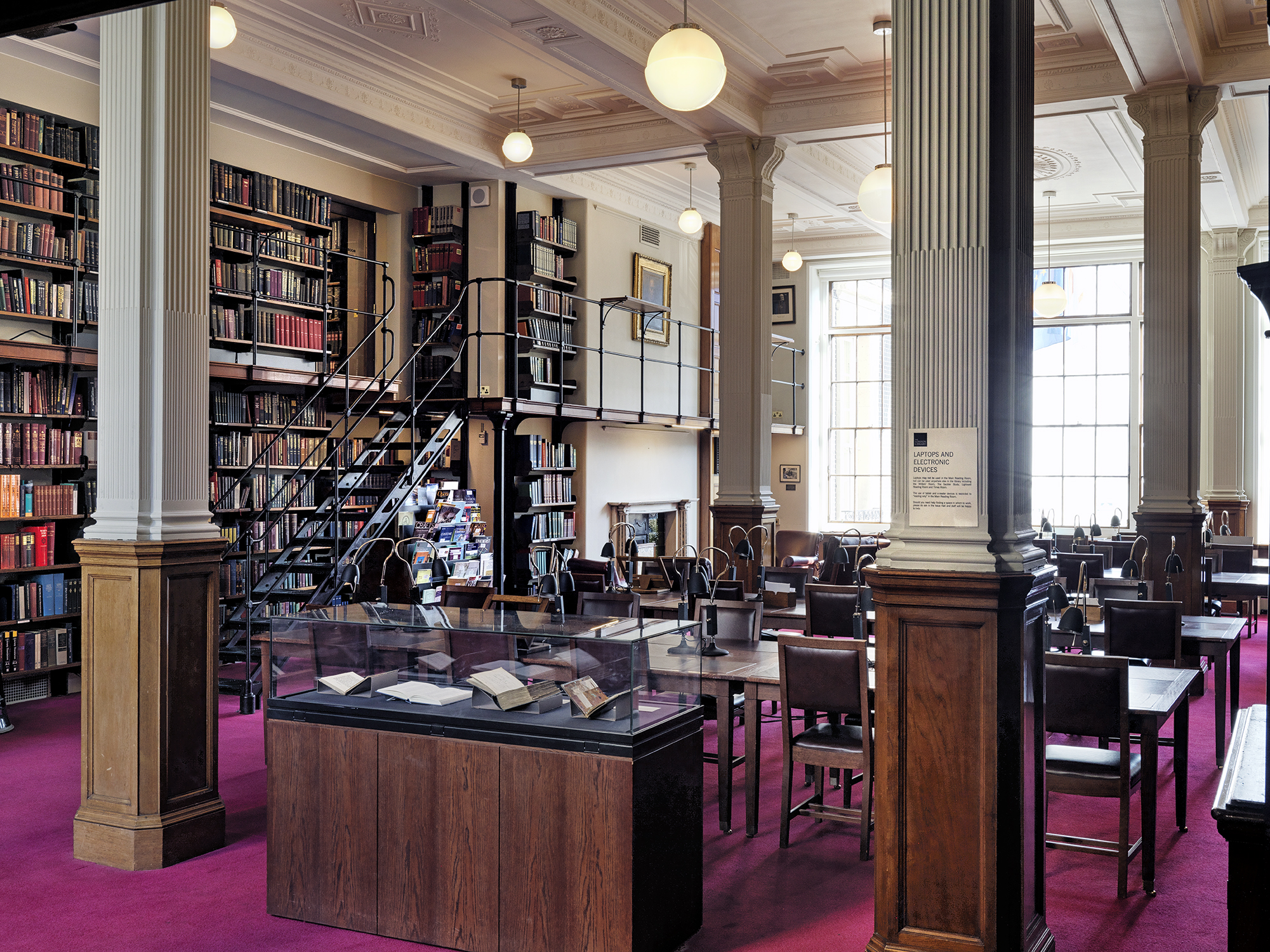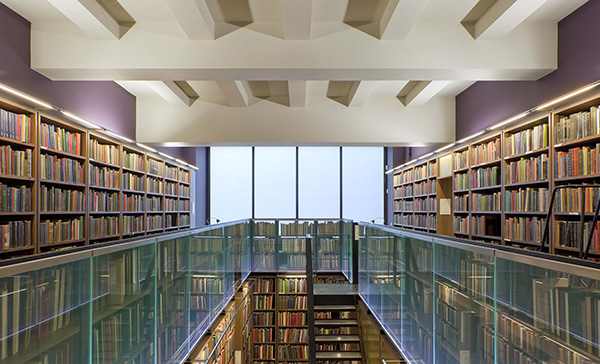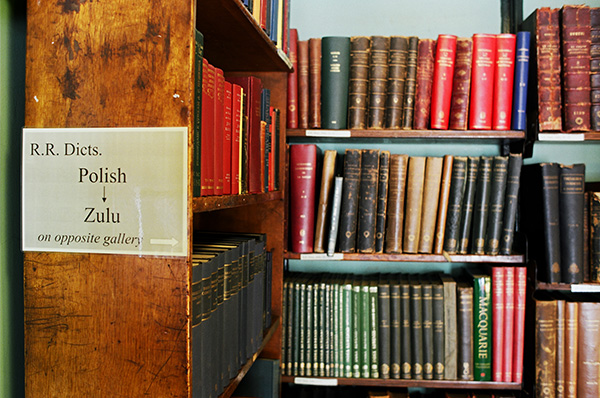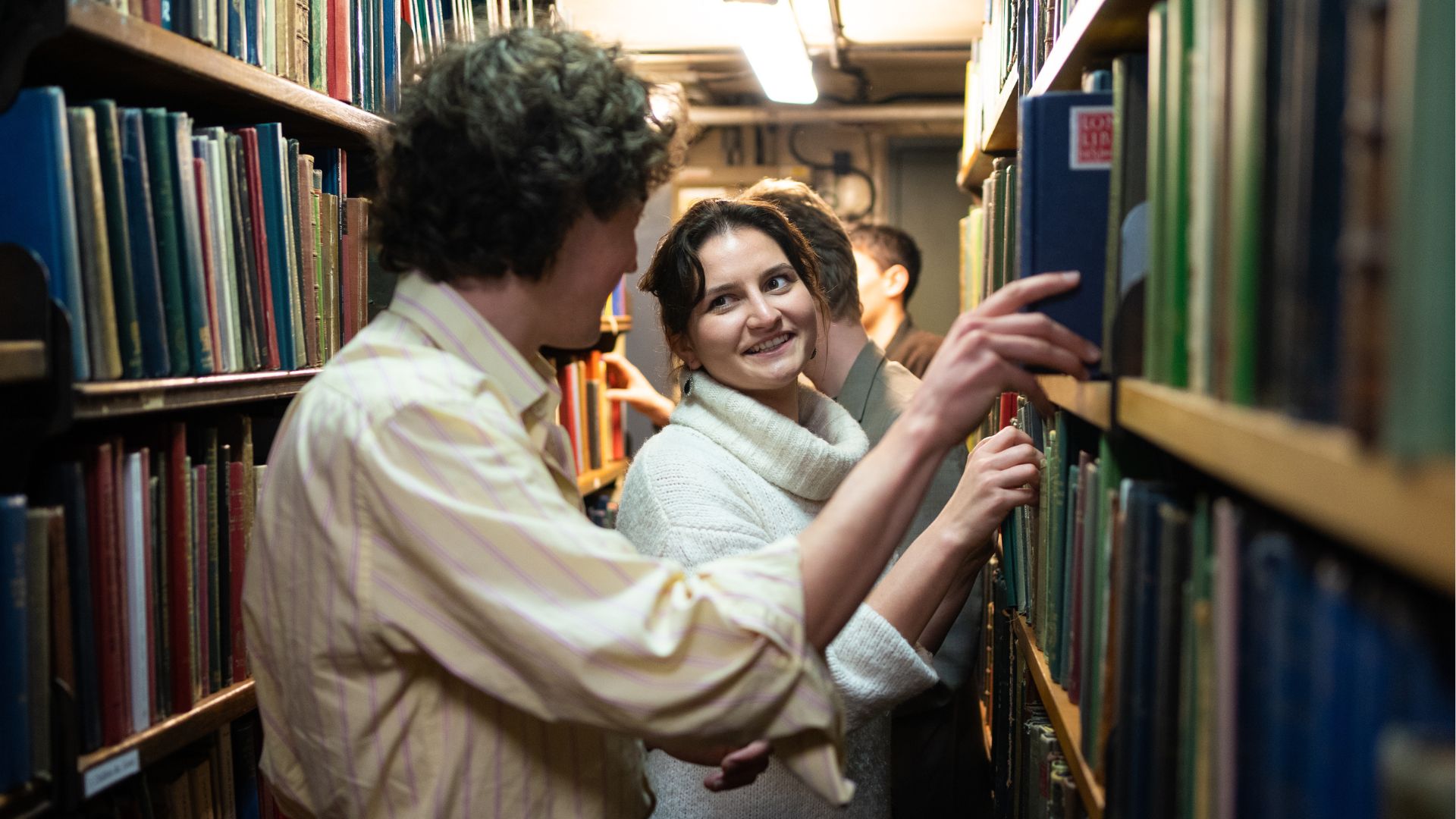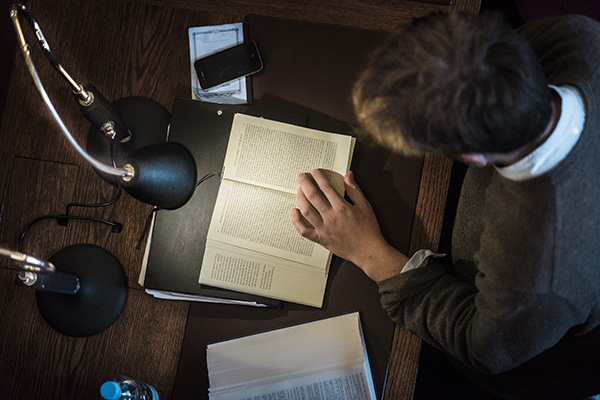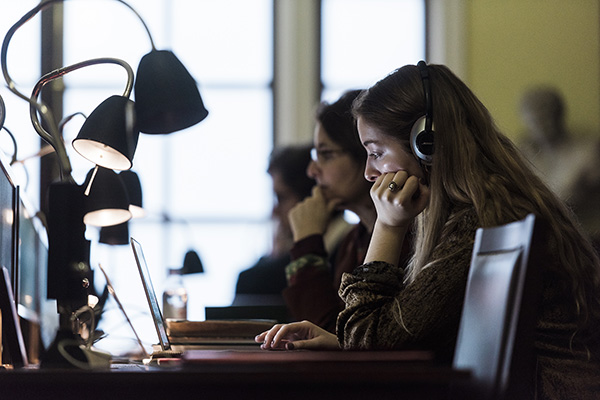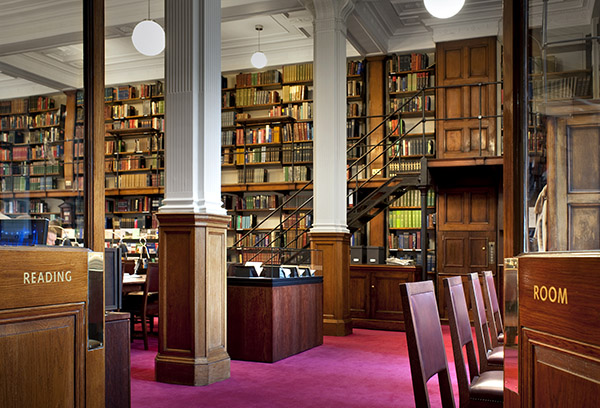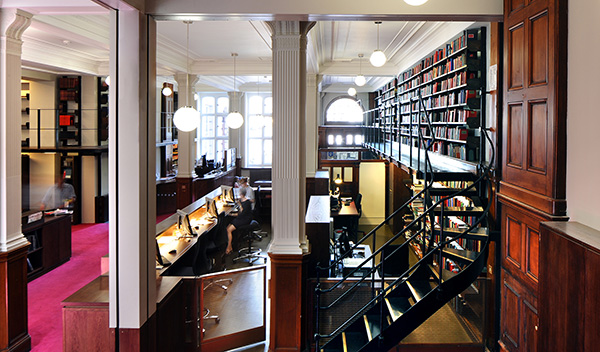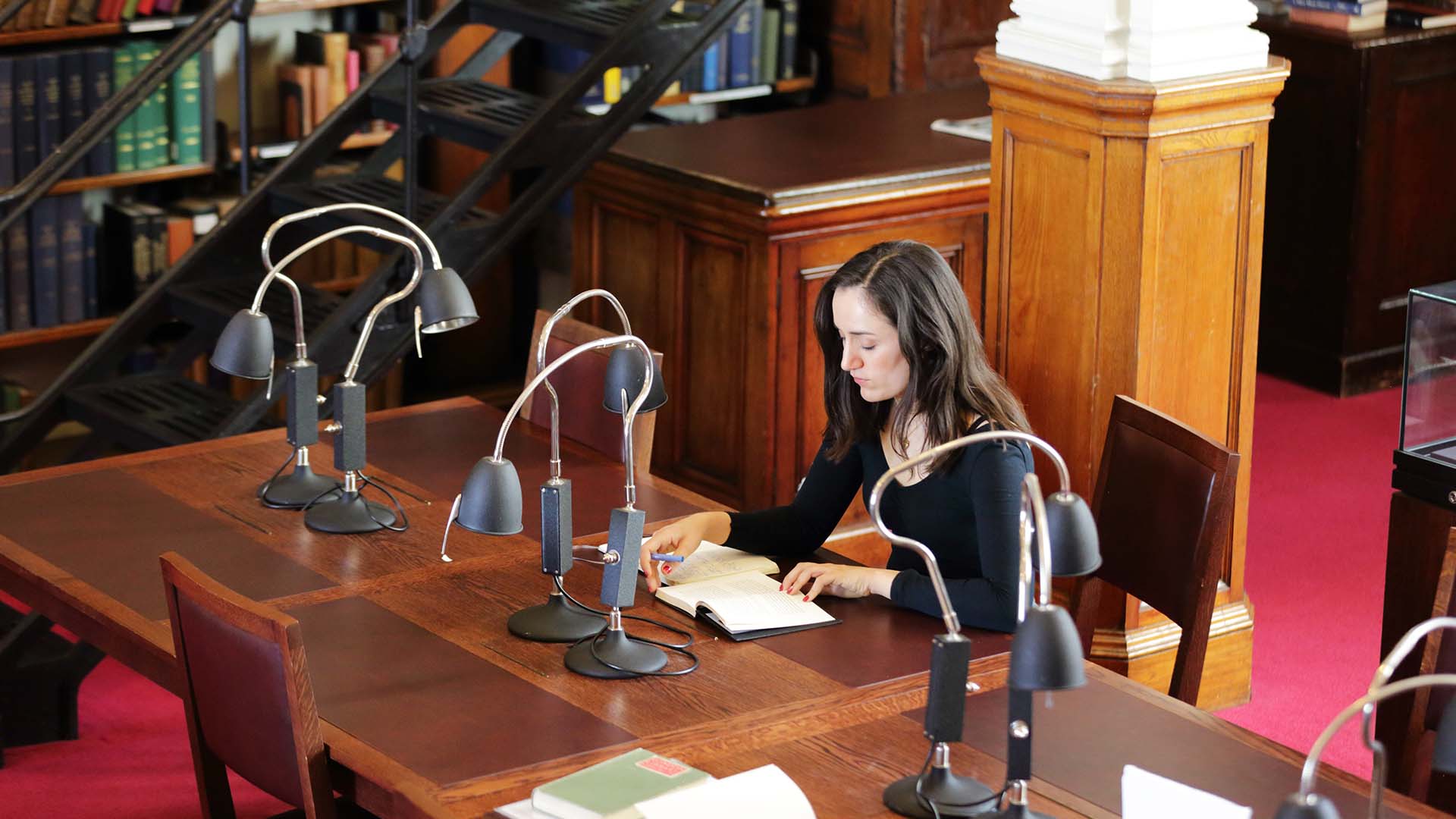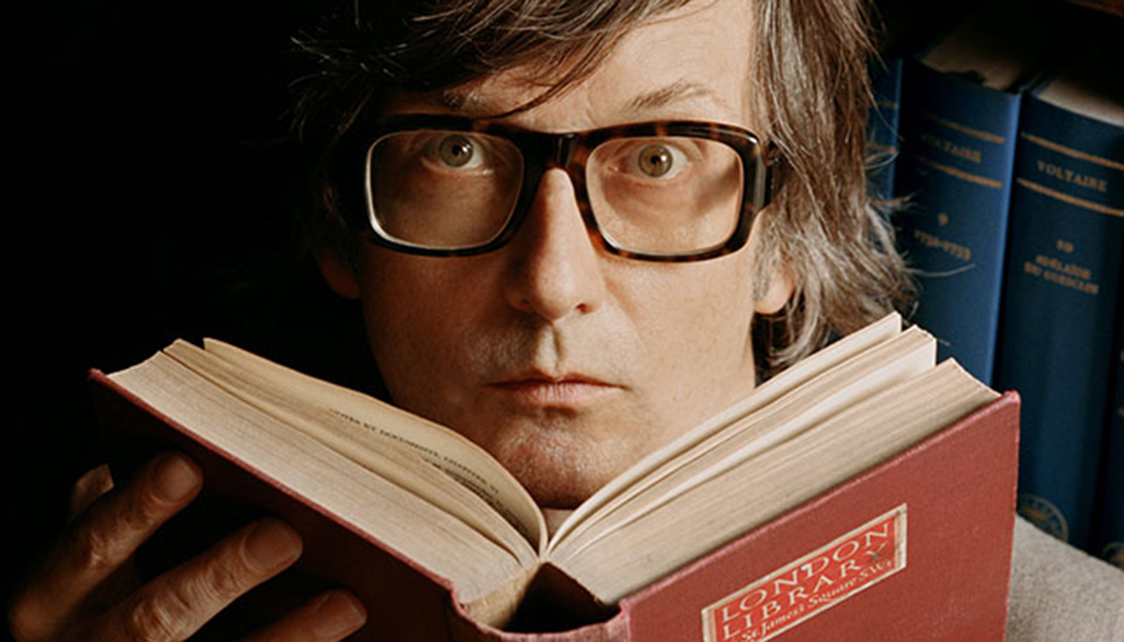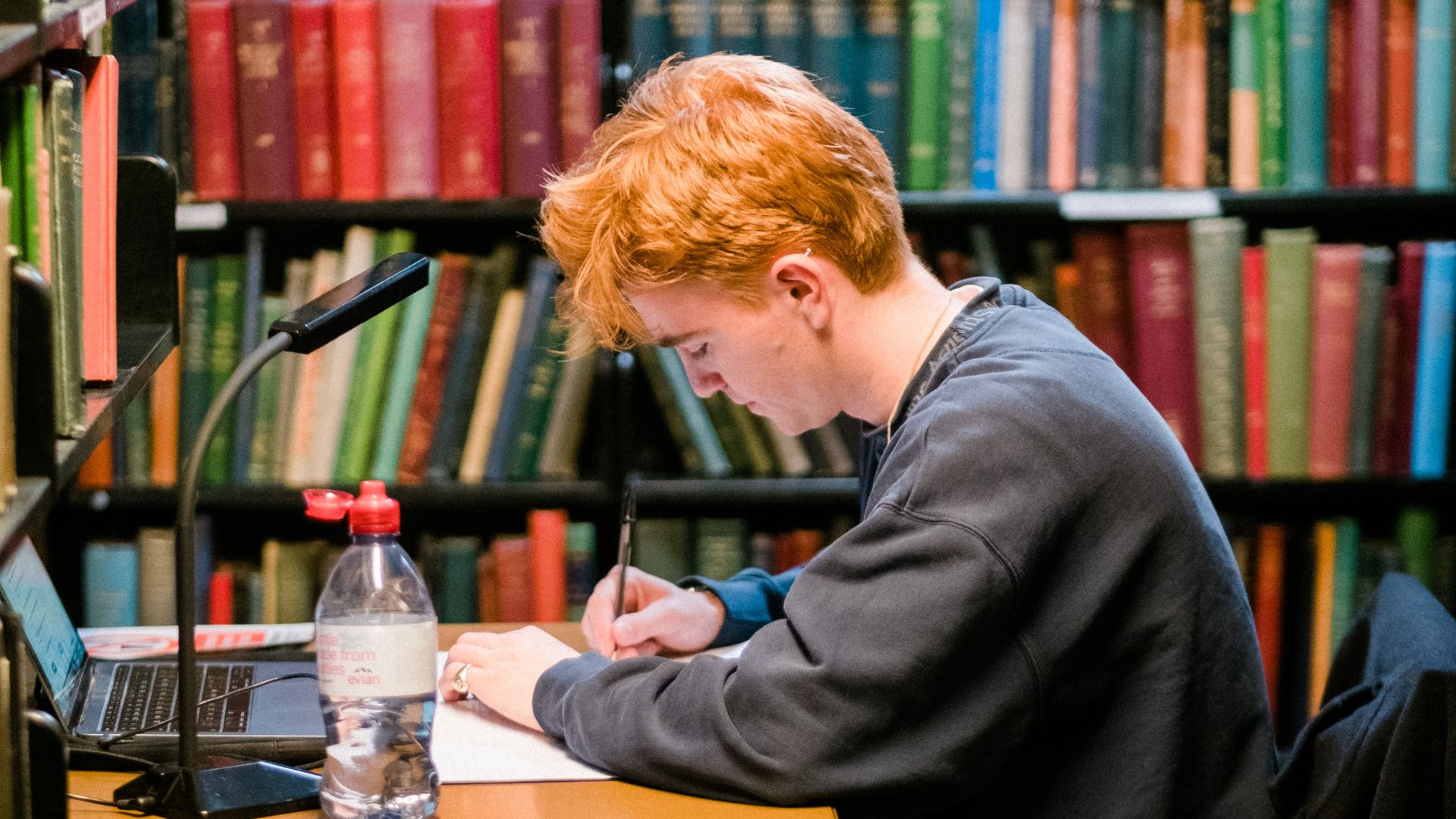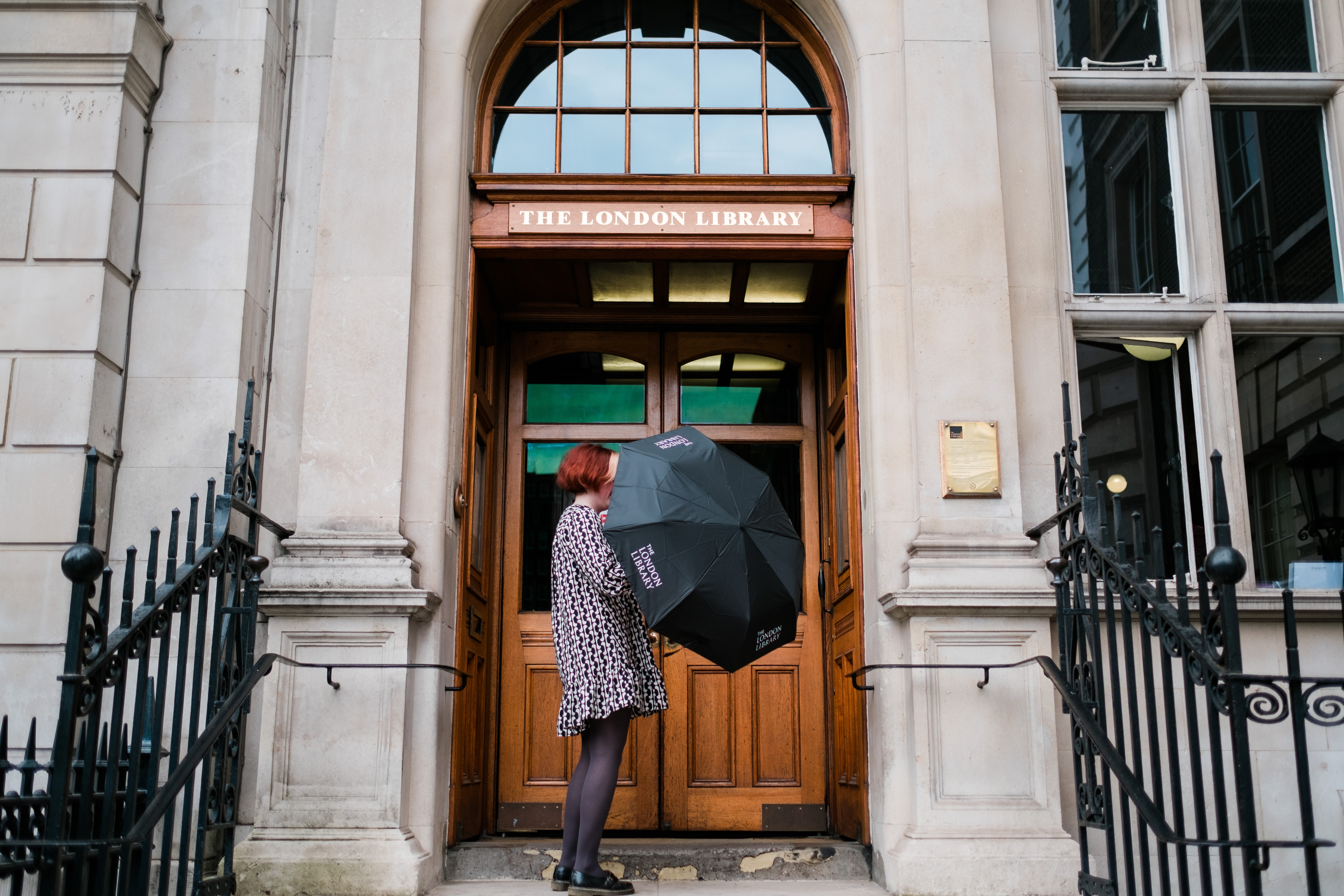The London Library Emerging Writers Programme opens for submissions today for the fourth year of this increasingly influential scheme for new writers. Geared towards supporting writers at the start of their careers, the Programme is open to anyone who is committed to pursuing a career in writing and wants to develop their work.
The Programme is targeted at emerging writers who have not yet published a full-length work of fiction, non-fiction or a collection of poems, or had a full-length work professionally produced for mainstream film, TV or the stage. The Programme offers writers one year’s membership of The London Library (which normally costs £555 per year) alongside writing development masterclasses, networking opportunities, peer support and guidance in use of the Library’s resources. There is no application fee and participation on the Programme is funded by philanthropic donations.
Since the initiative was launched in 2019 EWP has supported 118 previously unpublished writers. In that time participants have enjoyed increased awareness for their writing from the publishing industry – many have had first books and poetry collections published, secured publishing deals and have been recognized with awards and other writing successes. Writers Abi Daré, Amber Medland, Lianne Dillsworth, Isabelle Baafi, Krystle Zara Appiah, Carole Hailey, and Marina Gerner are just some of the participants who have followed their participation on the Programme with significant publishing success.
London Library Director Philip Marshall commented, “The Emerging Writers Programme is proving invaluable to early career writers and we are delighted that The London Library, a unique crucible for writers since it was founded 180 years ago, is able to help support such a wide range of new writing talent.”
The fourth year of the Emerging Writers Programme will run from 1 July 2022 to 30 June 2023. Applications open at 11am on 12th January 2022 and close at 11am on 2nd March 2022. Further information and how to apply can be found here.
Applicants will be selected anonymously by a panel of judges including YA novelist and essayist Yassmin Abdel-Magied, non-fiction writer Simon Garfield and playwright and novelist Nell Leyshon.
Yassmin Abdel-Magied concluded, “It is such a delight to be a part of the selection panel for the Emerging Writers Programme at The London Library. The range of applicants is always wonderfully broad, both in terms of demographics and genres, making the judging process a true pleasure, although choosing only a select few writers can be fantastically difficult! As always, I encourage any writer to apply - these schemes can be life changing in many ways, and who knows: the life it changes just might be yours.”
Philanthropic Support for the Emerging Writers Programme
Two bursary funds are available to support members of the cohort who may face financial, health, or any other barriers that would prevent them fully accessing the Programme:
- The Emerging Writers Programme Access Bursary has been generously funded by the International Friends of The London Library to help support those participants most in need.
- The Virago Participation Bursary has been generously funded to support Black women and Black writers from under-represented genders.
The 2022/23 London Library Emerging Writers Programme is only possible because of the generous support the Library has received from the International Friends of The London Library, the Peter Stormonth Darling Charitable Trust, the Julio and Maria Marta Nuñez Memorial Fund, and other anonymous donors.
Read more: The fourth year of the Emerging Writers Programme opens for submisisons
New Face Covering Requirements in the Library
Following the government’s recent announcement of new Covid restrictions, DCMS have confirmed that face covering restrictions in venues such as libraries will come into effect on Friday 10 December.
From 10am on 10 December, therefore, it will be a requirement for anyone visiting the Library – unless they are exempt from face covering restrictions - to wear a face covering in all areas of the Library, both when seated at desks and when moving around the Library building. While the restrictions are in force, we will no longer be able to offer mask-free working spaces in some of our reading rooms and members are asked to retain face coverings at all times when using these areas. Face coverings will also be a requirement in the 6th floor members’ area but may be temporarily removed during the consumption of food and drink.
A supply of face masks is available at Reception for those who need one.
Find out more about our Covid arrangements here.
The London Library celebrated its Emerging Writers Programme on Thursday 25 November with a party for those who have taken part in the popular initiative which began in 2019 and which has seen 118 early career writers welcomed into London Library membership.
As part of the celebration, The London Library launched a free-to-download anthology of writing by the second group to take part in the Emerging Writers Programme. From the Silence of the Stacks, New Voices Rise Volume II is available to download from The London Library’s website and as an eBook on Kindle (costing £2). A limited print run of a physical edition will also be available in the coming weeks at £8.
From the Silence of the Stacks, New Voices Rise Volume II is edited by Claire Berliner, Head of Programmes at The London Library and features writing from the group of 40 Emerging Writers who took part in the programme from 2020-21. The writers live across the UK, span a range of ages, backgrounds, cultures and nationalities and include poets, non-fiction writers, screenwriters and playwrights, novelists and short story writers, and some who write across multiple genres.
At the celebration, some of the 2020-21 Emerging Writers, Charlotte Forfieh, Marta Bausells, Freya Mavor and Daniel Marc Janes read from their anthology pieces. The party was also attended by those who have judged the initiative and other industry professionals including Isabelle Dupuy, Sara Wheeler, Valerie Brandes and Lisa Evans.
Philip Marshall, The London Library’s Director comments:
“The Emerging Writers Programme is specifically designed to provide support, expertise and resources to talented writers embarking on their journey towards a writing career. We are therefore very proud to be publishing this anthology of exceptional work from the second Programme cohort who, even through a difficult year, have shown great commitment and creativity and enriched the Library’s community.”
The celebration comes at the end of The London Library’s 180th year and in her introduction to the Anthology, Claire Berliner comments: “This year, The London Library celebrated its 180th birthday. It was founded all those years ago to offer writers, readers and scholars exactly what they needed to create and learn: books and other reading material; space and time; and a community of peers, all engaged in the same literary endeavour. In 180 years, those needs have not changed, but meeting them, particularly for those at the beginning of their writing lives, can be difficult. Thus, The London Library Emerging Writers Programme, which exists to open our unique offer widely and inclusively to a new generation of writing talent.”
Many of the 118 writers who have already taken part in the programme have benefited from increased awareness for their writing from the publishing industry by securing agents, commissions and publishing deals.
Read more: The London Library releases second Anthology from Emerging Writers Programme participants
We’re thrilled that the Library’s 180th anniversary LitFest was Highly Commended at last Friday’s FutureBook awards event, organized by the book industry’s leading trade title The Bookseller. The LitFest was pitched against the Booker Prize (the overall winner), World Book Night, Penguin Talks and the VoyagerCon festival for the top award in the Events category and it’s a tribute to the efforts of the Library team – and particularly those of Head of Programmes Claire Berliner - that the LitFest has been recognised as one of 2020’s most prominent publishing events. Its success reflects the range and innovation of the online programming that featured no fewer than 51 speakers across three days, including Salman Rushdie, Sarah Waters, Tom Stoppard and Simon Schama, plus a specially created, staged adaption of A Room of One’s Own with Nina Sosanya.
The Library was also recognised for the outstanding efforts of its Postal Loans team which was shortlisted in FutureBook’s Team of the Year award alongside Penguin Random House and Hachette UK. Throughout the pandemic, the Postal Loans Team has run an enhanced service that has seen over 22,000 books sent out to members. Facing often challenging working and travelling conditions during lockdown and at a time when very few libraries were able to make their collections accessible at all, the service has been hugely appreciated by members. We’re delighted to have the Library’s events and postal loans recognised in this way and our congratulations go out to all the team members who have worked to achieve this.




